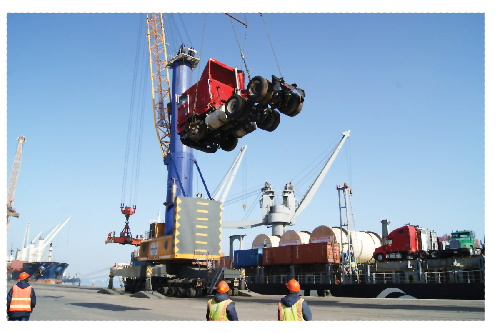
International ride hailing not adhering to local laws and requirements

By Michel Haoses.
Last week, Mr Melkies Ausiku, the Founder and Chief Executive of LEFA Transportation Services released a statement regarding the imminent shutdown of LEFA due to unfair competition from international ride hailing companies not adhering to local requirements, laws and regulations governing the Namibian transportation industry.
According to Ausiku, LEFA like all other locally registered transportation services has ensured that each driver is licensed with a Road Carrier permit and Operator disc issued by the Roads Authority, ensuring safety and accountability in their services.
The laws and regulations of the Road Transportation Act and the Namibian Tourism Board Act state that private shuttle services must acquire an operator disc from the Roads Authority, a road permit issued by the Roads Authority, and an operator disc issued by the Namibian Tourism Board. The vehicle must also be roadworthy and properly licensed.
Furthermore with the inherent risk associated with transportation of passengers, the prerequisite for registration with the NTB is Passenger Liability insurance (minimum of N$5 million per incident) and each driver must have a valid first aid certificate.
Despite these laws and regulations in place, international ride hailing companies are allowing illegal operators who do not possess the necessary certificates, licences or insurance, to offer their services under the ride hailing banner. According to Ausiku, offering a public transportation service, not only violates the regulations but also undermines efforts by legal operators who at a great financial cost are trying to comply and provide safe and reliable transport to the public.
Consequently the lack of compliance has been detrimental for local operators resulting in loss of market share as customers are persuaded by the price offered by some of the competitors, and which is unsustainable for legal operators.
Although, decreasing the price of services might seem like the solution, constraints and maintenance cost such as rent, technology used to manage the ride hailing platform, salaries of permanent employees, vehicle wear and tear, driver fee and the price of fuel, collectively constitute a huge cost factor that does not make it possible to continue operating in compliance with the regulations.
Additionally, the legal operators are liable for the costs associated with the Road Transportation Act and the Roads Authority which the other operators do not have, placing them at a disadvantage creating a uneven playing field for legitimate operators.
Ausiku also mentioned that over 50 locally registered shuttle and transfer companies, compliant with national regulations, have all shown their support through a petition to address this growing concern of unfair competition.













































